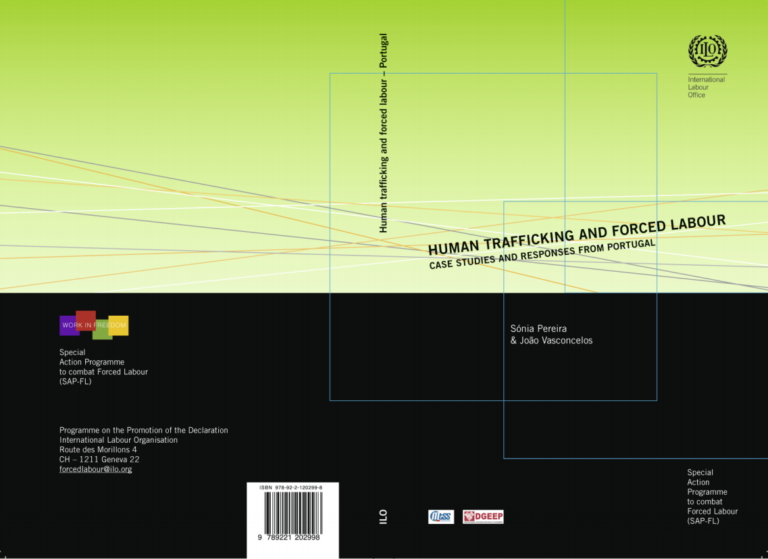Human Trafficking And Forced Labour – Case studies and responses from Portugal
The objective of the book is to study the phenomena of labour exploitation and forced labour to which immigrants and, in particular, victims of human trafficking, are subjected in Portugal. It also sheds light on the treatment of Portuguese emigrants in select destination countries.
Portuguese emigration today, which is overwhelmingly directed towards European Union Member States, seems to be at crossroads. Between formal entitlement to an employment status equivalent to that of the destination countries’own citizens and the labour exploitation documented here, there is a deep divide that must be bridged. Temporary employment agencies and informal recruiters working for foreign agencies play a key role in leading Portuguese workers into labour exploitation and forced labour situations. Exploitation of Portuguese migrant labour in Spain and in the Netherlands seems to be clearly more common than extreme cases of forced labour. This conclusion does not exclude, however, that psychological coercion against emigrant workers who are victims of labour exploitation is a recurrent practice. In line with our observations concerning exploitation of immigrant labour in Portugal, physical coercion or abduction used to force migrants to stay in a place of work seem to have given ground to more subtle psychological coercion.

